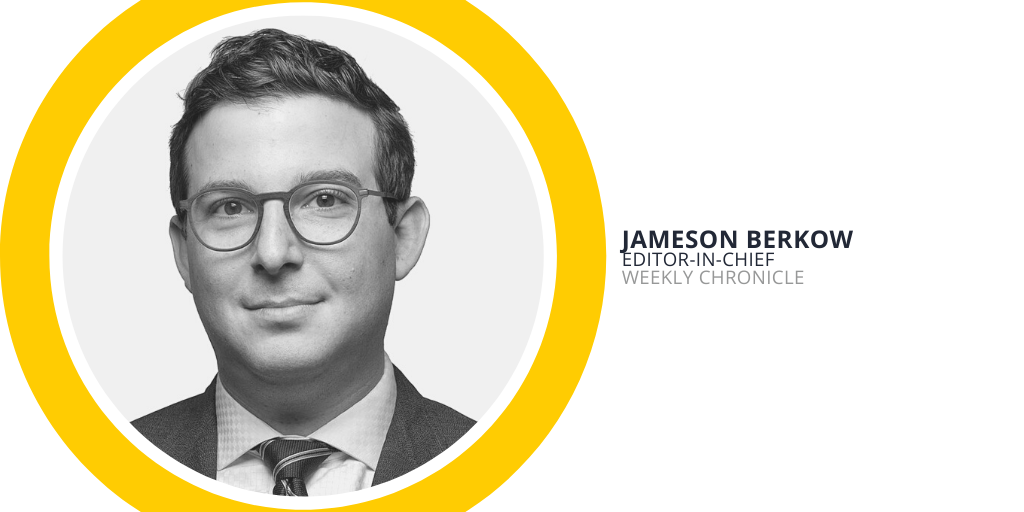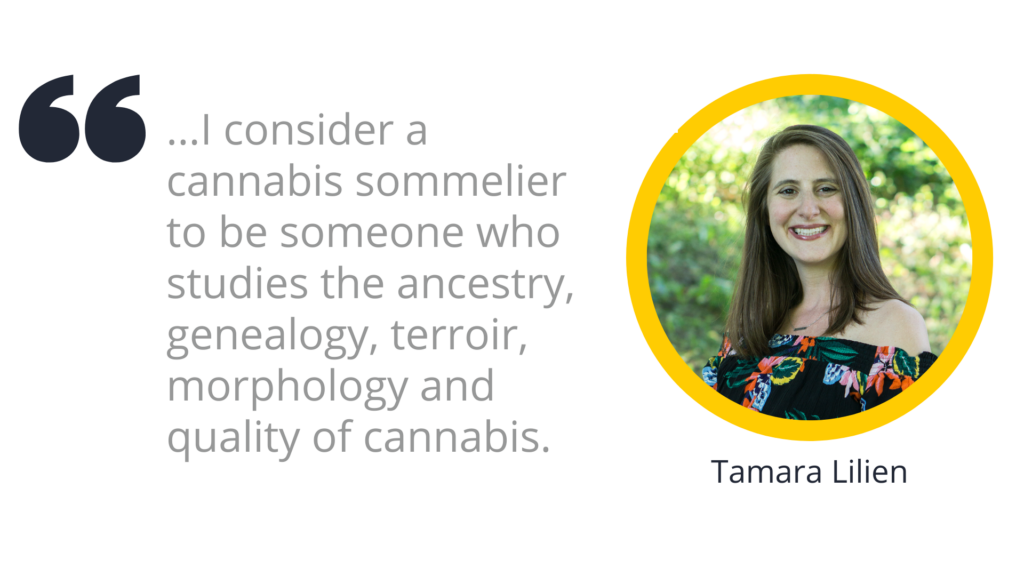From the Editor
Hi there,
This week, the raw power of words is on full display. It was not something I anticipated when we decided to devote this issue of Weekly Chronicle to the rise of the ‘cannabis sommelier’.
It wasn’t until someone told me “I really hate that everyone that you have spoken to for this story couldn’t fucking choose any other word aside from sommelier” that I started to wonder: why that word?
Cannaseur, Budwiser, Cannabist: Redditors have been proposing new terms for years along with various professional suggestions. And yet, those who have adopted the moniker ‘sommelier’ insist that is the best name for their vocation. Even if that means drawing ire from a centuries-old institution.
We would love to know where you stand on this issue: should cannabis experts be entitled to use the term ‘sommelier’? And if not, what other term would work better? Let us know through this survey. The story below will hopefully spur some thoughts and the best responses will be featured in an upcoming issue.
Yours in pursuit of progress,

You are Not a Cannabis Sommelier and You Never Will Be
by Jameson Berkow
No matter how much you might know about cannabis, calling yourself a ‘sommelier’ on the subject is an invitation to criticism and an intense debate. Read on at your own risk.
Andrew Freedman is THE cannabis sommelier.
He has trademarked the term, but that is not the only reason he uses the definite article (emphasis his). Sommelier, he says, is a specific designation with a historical definition dating back to the 1400s that cannabis has wrongfully appropriated instead of finding a unique designation of its own.
“If you are a master of beer you are a cicerone, if you are a master of coffee you are a copper and if you are a master of cheese you are a monger,” Freedman said in an interview from his Calgary home. “I find we are just becoming lazy in not finding the right dictation for cannabis.”
Some have sought to invent entirely new terms intended specifically for cannabis expertise. Max Montrose, president of the Trichome Institute in Colorado, coined the term “interpeneing” for that purpose and even published a book by that name. The subtitle of that book, however, is “the art and science of the cannabis sommelier.”
This issue of Weekly Chronicle is part of a 4-week free trial. Until October 16, take advantage of our introductory offer for just $99/year.
“Most cannabis experts, and I say that with my quotation fingers in the air, couldn’t even tell you the basic anatomy of a cannabis flower,” Montrose said in an interview. “If you were to consider yourself a cannabis sommelier in the same fashion as a wine sommelier, that would have to come with an understanding that you have a knowledge base of cannabis that supersedes what most experts know.”
Tamara Lilien certainly meets that standard. Certified by the Michener Institute as a cannabis educator and a member of the expert curation committee for AHLOT – where she is quite literally paid to smoke weed – Lilien considers herself more of a cannabis sommelier than someone who entered the field via another intoxicant (namely, wine).
“There are a million different ways of approaching it, but I consider a cannabis sommelier to be someone who studies the ancestry, genealogy, terroir, morphology and quality of cannabis,” she said in an interview. “In my mind, when I think about a cannabis sommelier, I try and extrapolate what a wine sommelier would be to cannabis, but in my mind there is a clear distinction.”
Freedman claims that is the exact process he followed. He realized “there was only one way to accredit your palette, and that was learning wine.”

Answering that question first requires a quick definition: If you’ve ever taken one Tylenol and one Advil instead of two of either, then you understand the concept of the entourage effect.
“We have no idea what Tylenol actually does, we just know it does something and we know it does something different than Advil so when you put them together you are actually getting that synergistic entourage effect not because they are helping each other do anything, but because they are doing two different things,” Michael explained.
“At some level, we do know that is the case with terpenes and cannabinoids, so just from first principles we know [the entourage effect] does exist because we know from other plant extracts that terpenoids have a huge impact on human physiology.”
“But we don’t know what that impact is when you bring them together with THC or CBD in different concentrations.”
“Because I am a wine scholar and I speak a different language I saw a massive gap in how the media was presented to the cannabis-curious [and] I was able to borrow some things from wine and reinvent them for cannabis, such as the 100-point scale for grading,” Freedman said. “At first people laughed at it and said I was just copying wine, but it really was reengineered completely and if you give it another 12 months it will be THE international standard as long as I have my way.”
Montrose and others argue Freedman’s expertise and training in wine is exactly why he should not be considered a cannabis sommelier, but Freedman argues the opposite is true.
“Cannabis and wine are identical, they are the exact same agricultural product, it is just that one you have to ferment to turn it into an intoxicant and the other you have to dry or cure, but on a microscopic level the glandular head of a trichome on a grape is the exact same shape and is filled with the exact same chemicals [as in cannabis flower],” Freedman said. “The idea that people want to be a sommelier but forget about wine is crazy. A Sommelier is an expert in cigar, service, spirit and wine.”
In other words: expertise in cannabis alone is not enough to earn the ‘sommelier’ title.
Weekly Chronicle is made possible with support from:
Lilien agrees “it is the same core concept… there are different phenotypes of grapes just like there are different phenotypes of cannabis strains.” But in her mind “there is a clear distinction, there is no intersection between the two.”
Freedman believes cannabis should simply be absorbed by the existing wine sommelier community. “As global markets legalize and cannabis is normalized into the fine dining experience like cigar, spirit and everything else the sommelier should already be an expert in, the sommelier should become an expert in cannabis as well,” he said.
Ultimately, whatever term cannabis experts choose to identify themselves, it is important to remember the rules of the profession itself are still being written.
“The job description of a cannabis sommelier and the parameters of the role are not clear,” Lilien said. “We, ourselves, have got to design what a cannabis sommelier might or might not do [and] depending on who you ask, you might get a different definition.”

























